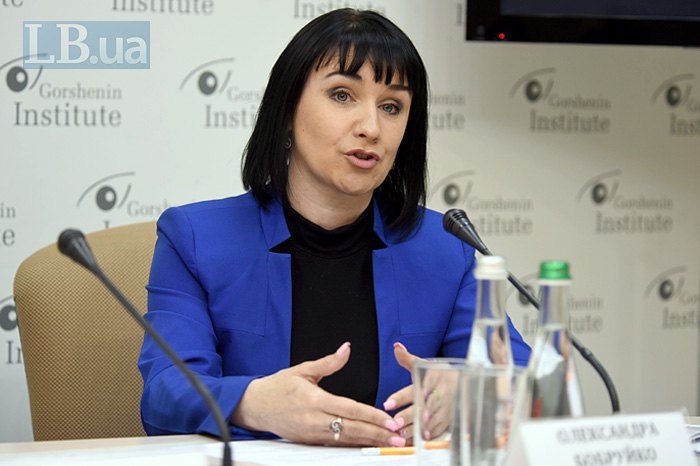Gorshenin Institute has hosted a roundtable discussion on early programming in school. Experts discussed whether it is reasonable to add coding to elementary school curricula and how this course can help children develop important skills and competences.

According to the president of the EVEREST group of companies, Yuriy Chubatyuk, digital literacy, programming basic and ICT skills are the key competences necessary for children to ensure future successful employment and competitiveness in the job market, regardless of the chosen profession. In addition, the introduction of early programming in schools as a mandatory subject can produce not only programmers or highly specialized ICT specialists, but also to form a qualitatively new generation of comprehensively developed progressive specialists in each field of activity.

"Today we are not saying that something should be imposed on children for the sake of some global benefits. We are talking about a subject in which children, in fact, are already actually involved from an early age thanks to the fact that they live in a world of innovation and modern gadgets. They are ready for this. We only need to create conditions in which they can build their knowledge and skills in a systematic way, as part of schooling, as many countries of the world do," Chubatyuk said.
He suggested that the course should be added to school curricula either as a separate subject or embedded into the existing IT subject since its content does not meet either the current trends or demands of the job market, the wishes of parents, or the interests and needs of children as such.
Early programming in schools could not be introduced without proper teacher training, infrastructure improvement and the development of appropriate curricula and teaching guidelines, an adviser to the minister of education and science of Ukraine, Ivanna Kobernik, said.

"When we talk about the introduction of any courses or programmes in school, we have to talk about real opportunities. In the case of early programming, it concerns the availability of computers and school access to the Internet. In reality, 400 Ukrainian schools have no computers at all which could be used in the educational process. In half of Ukrainian schools the Internet connection is slower than 10 Mbit/s, which prevents educational content from being used effectively," she said.
Modern children, according to Kobernik, are often ahead of adults in terms of digital literacy and the speed of acquiring new skills. Therefore, the introduction of programming basics can motivate children to take a great interest in the educational process.
To a certain extent, a modern school curriculum already includes elements of early programming, according to Oleksandra Bobruyko, elementary school teacher at the Academy of Modern Education.

"For example, in math there is such a graphic dictation when a student fills certain cells in a notebook, thus forming some kind of a shape. Someone may not understand why we are doing this. And this is early programming for schoolchildren without a computer: to show that the child coded a certain path and got a certain shape as a result," she said.
Learning programming starting from the early grades will have a positive effect on children's psychological perception, if the issue is approached comprehensively, according to Kateryna Goltsberg, a child and family psychologist, the president of the professional Association of Child Analytical Psychologists.

"The key right of children at school is a right to make mistakes. And in programming, this is not the mistake for which they will get a bad grade from a teacher. This is a system error that they have to correct because the code simply will not work. And it is interesting for them to make sure it works. It is like a quest when you cannot go to the next level. In addition, children are very anxious these days, it is easier for them when there is predictability in some actions, so early programming will allow them to be sure about what happens next," the psychologist said.







